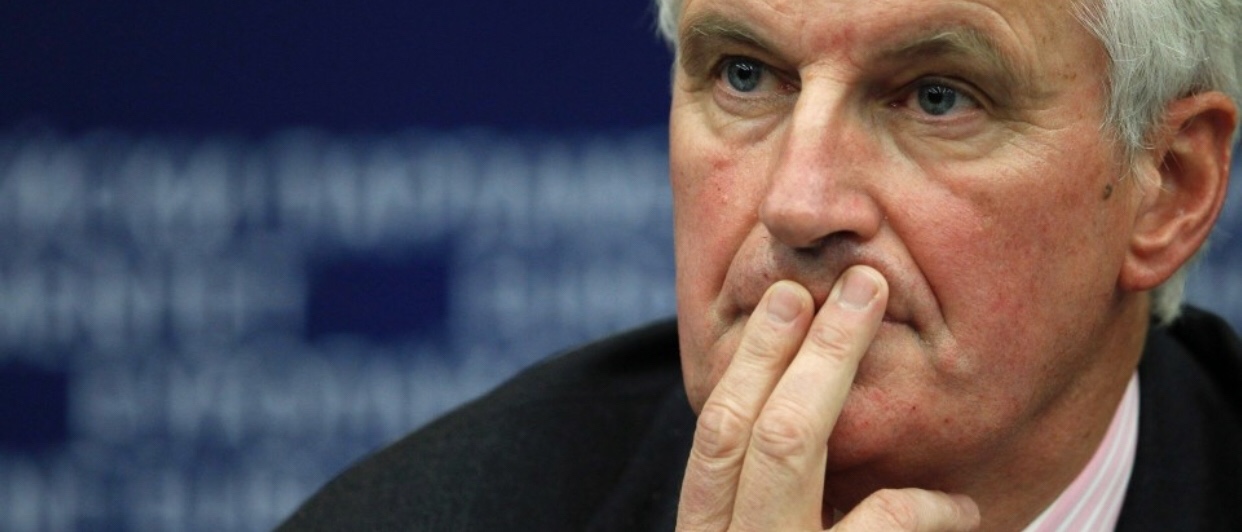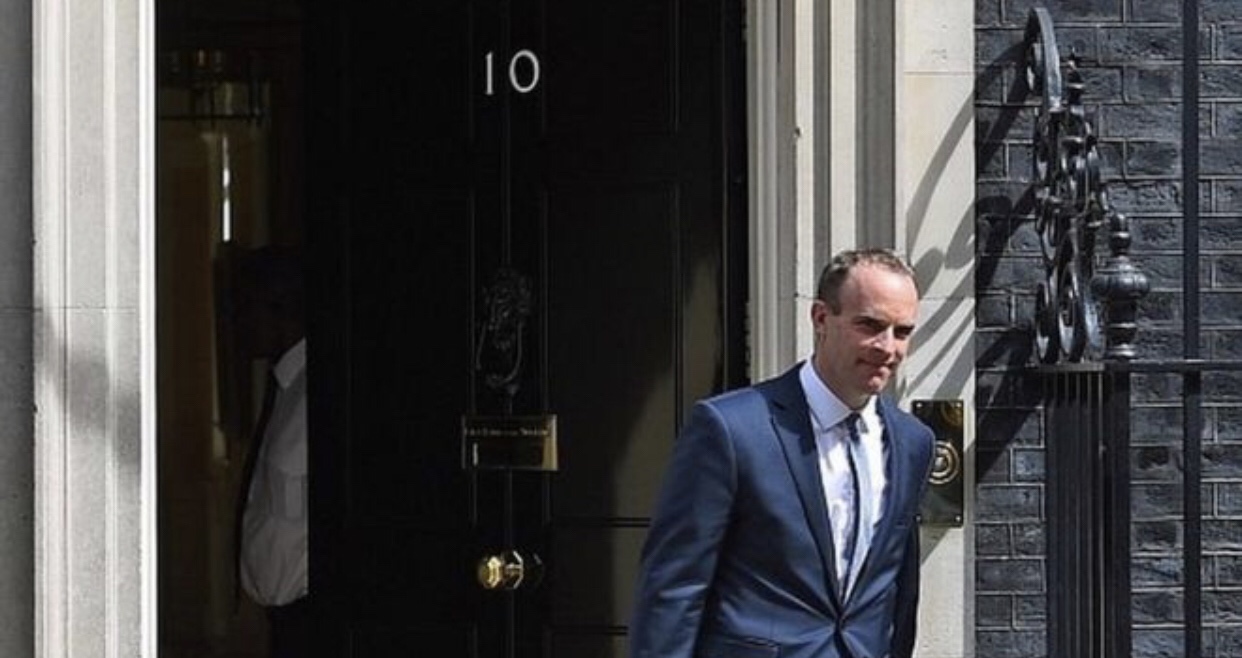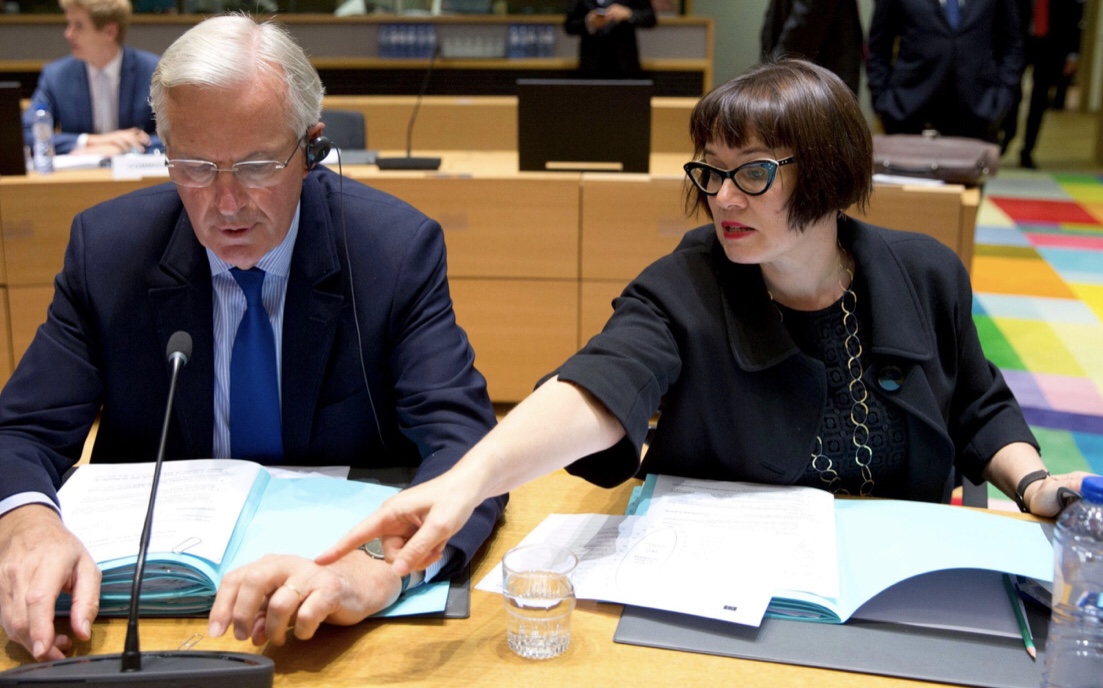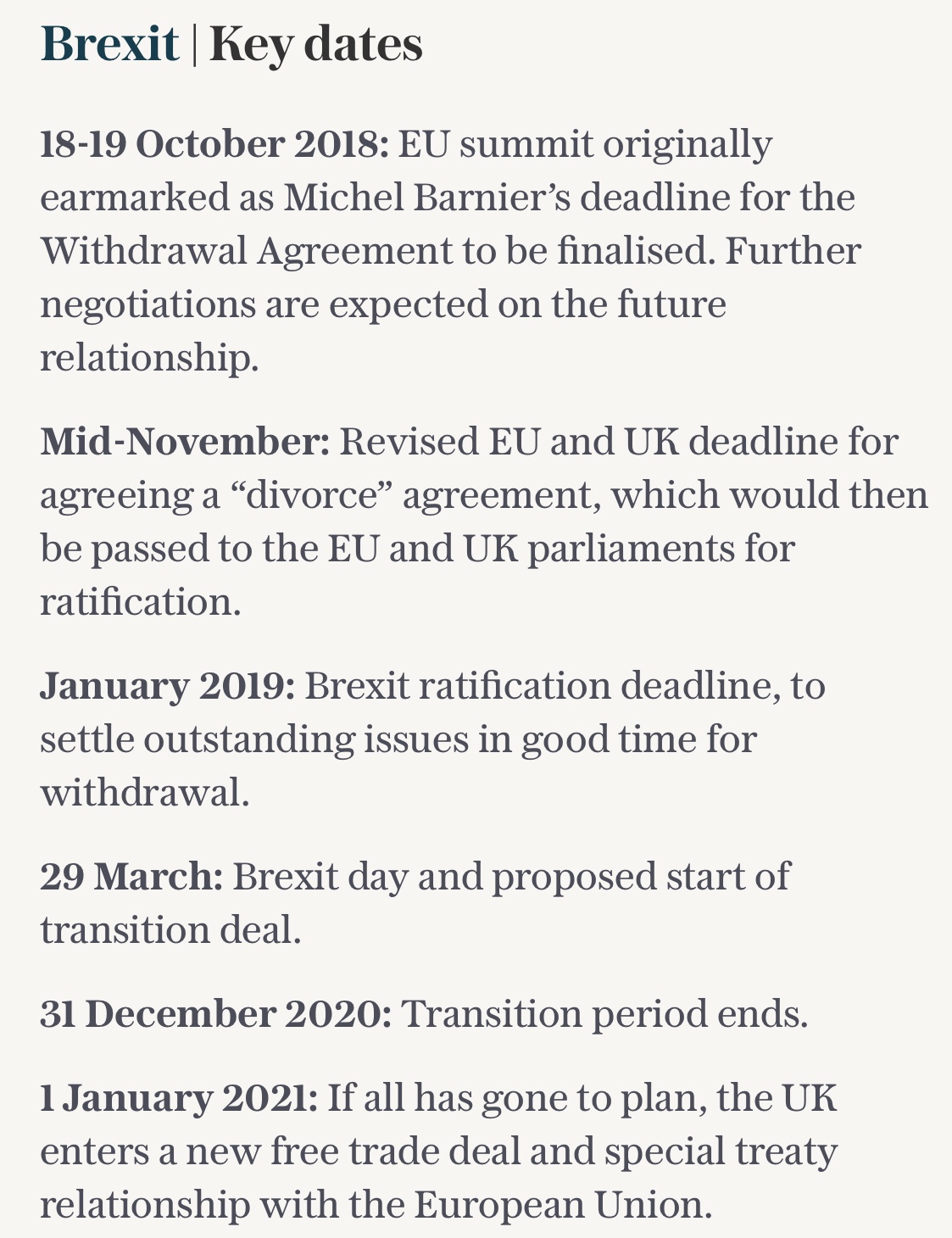Dominic Raab expects a divorce deal with the EU by November 21
UK Brexit negotiator Dominic Raab has said that he expects a divorce deal with EU on Brexit before 21 November. Is it likely?
Michel Barnier was under mounting pressure to agree to a fresh compromise with Britain over the Irish backstop, senior EU sources told The Telegraph on Wednesday night, as Dominic Raab said he expects a divorce deal with the EU by November 21.

The Brexit Secretary’s optimistic prediction in a letter to MPs came despite both sides being locked in an apparently intractable impasse over the so-called ‘Irish backstop’ to guarantee no return to a hard border in Ireland.
Technical level talks resumed in Brussels this week between Olly Robbins, Theresa May’s Europe adviser, and Sabine Weyand, Mr Barnier’s deputy, as both sides tried to plot a way through the deadlock over Ireland.
The Telegraph understands from senior EU sources that Mr Barnier is now under growing pressure to accept British proposals that the Withdrawal Agreement should now include an open-ended Customs Union with the EU.
The move comes as central European and western EU member states privately express concerns that the ‘backstop’ agreement as originally conceived by Mr Barnier will never be accepted by Mrs May.
Mrs May has always said such a deal is “unacceptable” since it leads to the economic partition of the UK. It has also been roundly rejected by both Northern Ireland and Scottish unionists.
An alternative option of extending the transition period so the ‘backstop’ is never used has also been discussed, but is seen as politically less viable following a fierce backlash in Westminster when Mr Barnier mooted the idea a few weeks ago.
Mr Raab’s prediction to the House of Commons Brexit scrutiny committee was made in a letter dated October 24, a few days after the stalemated October European Council summit, but was only made public on Wednesday.

“I would be happy to give evidence to the committee when a deal is finalised, and currently expect 21 November to be suitable,” he wrote.
Currency markets responded positively to the news when details of the letter emerged on Wednesday afternoon, sending the pound up nearly half a per cent against the dollar.
Including an all-UK customs arrangement in the backstop would be intended to reassure Unionists that if it ever came into force, Northern Ireland would not be cast off into the customs territory of a foreign power.
The UK put forward the proposal last June, noting that it would stand only until the commitment to maintain an invisible border in Northern Ireland was “fulfilled through the overall UK-EU partnership”.
Until now, this has been rejected as legally impossible by Mr Barnier’s negotiating team, arguing that Article 50 can only deal with ‘severance’ issues, but pressure is now growing on the Commission to radically rethink that position.

British negotiators have long argued that if the ‘backstop’ on the future of the Irish border has a legal basis under Article 50, there is no logical reason why it should not also include the details of a customs arrangement.
“There are legal issues, but we must be pragmatic not dogmatic, this is ultimately only a backstop, and everyone wants to fix this through the future relationship,” said a senior central EU diplomat with knowledge of the talks.
Senior Brexit diplomats from two other EU states made clear to The Telegraph that if the EU leaders agreed to include customs arrangements in the Withdrawal Agreement, then politically-speaking the legal objections could be overcome.
“If we have a solution with UK, then who will stand up and say ‘this is not compatible with Article 50’, that ridiculous,” the diplomat added. “The Court [European Court of Justice] is so political, they won’t rule against it.”
Creating a fully-fledged customs arrangement in the Withdrawal Agreement would set a significant bureaucratic challenge to negotiators, with only weeks available to finalise a deal, even allowing for slippage of the November timetable into December.

The UK has already agreed to accepting the need to manage regulatory differences across the Irish Sea in a backstop scenario – a position which has drawn fire from the Democratic Unionist Party.
It remains unclear whether, if Mr Barnier yields to pressure, whether member states would still retain a ‘backstop to a backstop’ in the event the British quit the customs arrangement unilaterally, as the UK says it wants to retain the right to do.
At issue is the Commission’s demand for a so-called “all-weather” backstop – a term that, UK negotiators note, has never been included in any officially agreed document, but is a phrase favoured by Mr Barnier and the Irish government.
Both UK and EU diplomats in the talks have now begun to discuss whether that threshold for a backstop that covers every eventuality might be set too high. “It’s an insurance policy but that doesn’t mean that it’s right up to being tsunami proof,” said a source on the EU side.
Whether Mrs May can sell a backstop deal which includes a ‘temporary’ customs union that will only fall away when a future EU-UK relationship solution is found that delivers an invisible border in Ireland is a source of continued concern on the EU side.
But David Davis, Mr Raab’s predecessor who resigned over the prospect of just such a deal, said on Tuesday evening that he believed Mrs May would get a Brexit deal through Parliament because the “terror” of no deal would compel many potential rebels to back her.
Mr Davis said that the “irrational fear of no deal” would bring many MPs to heel and provide the Prime Minister with the numbers necessary to get an agreement with Brussels across the line.
Source: The Telegraph
You must be logged in to post a comment.